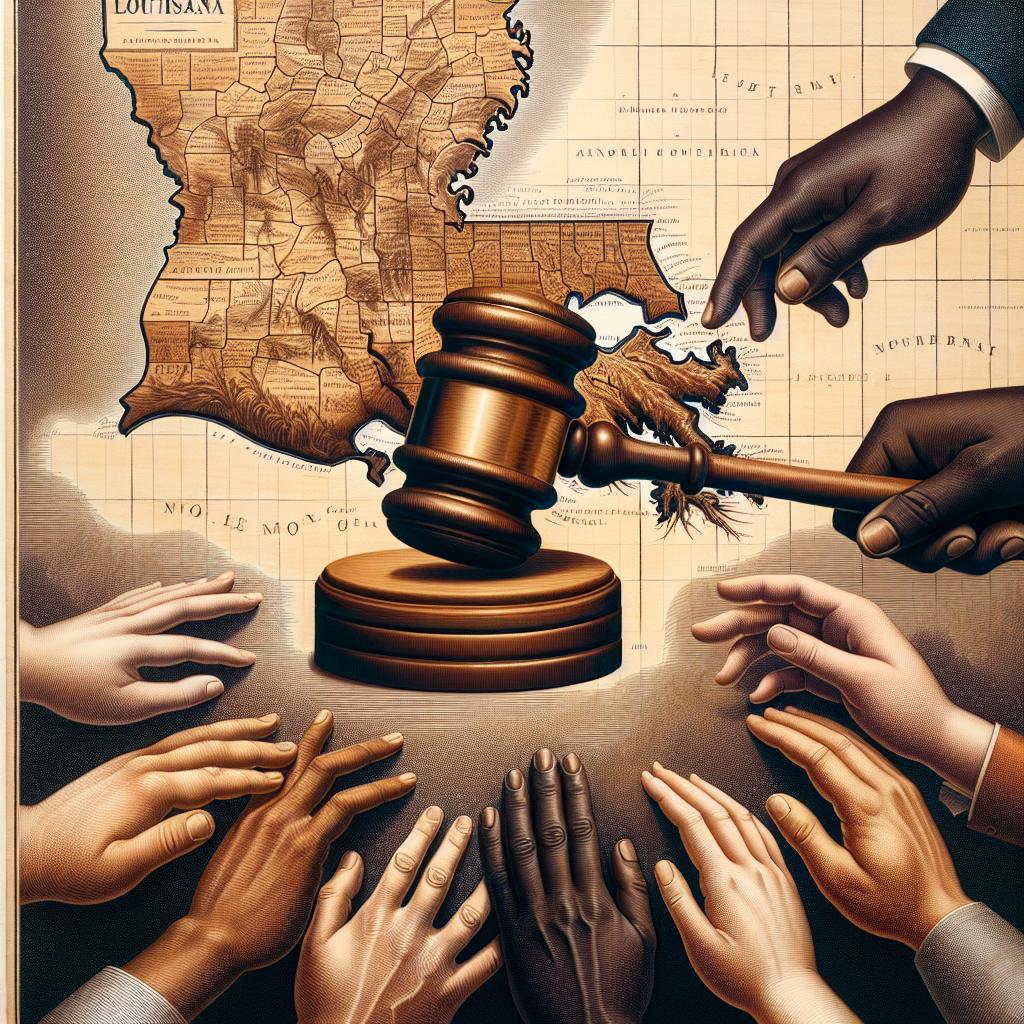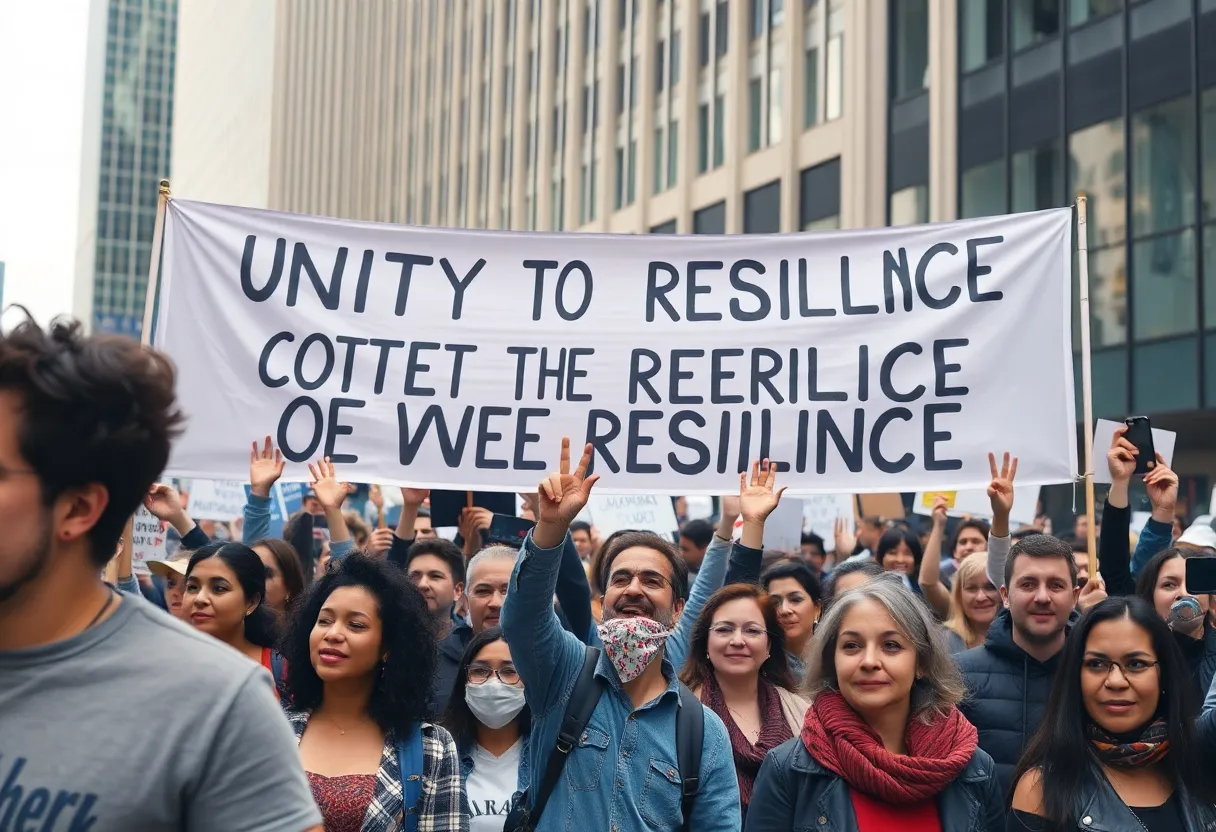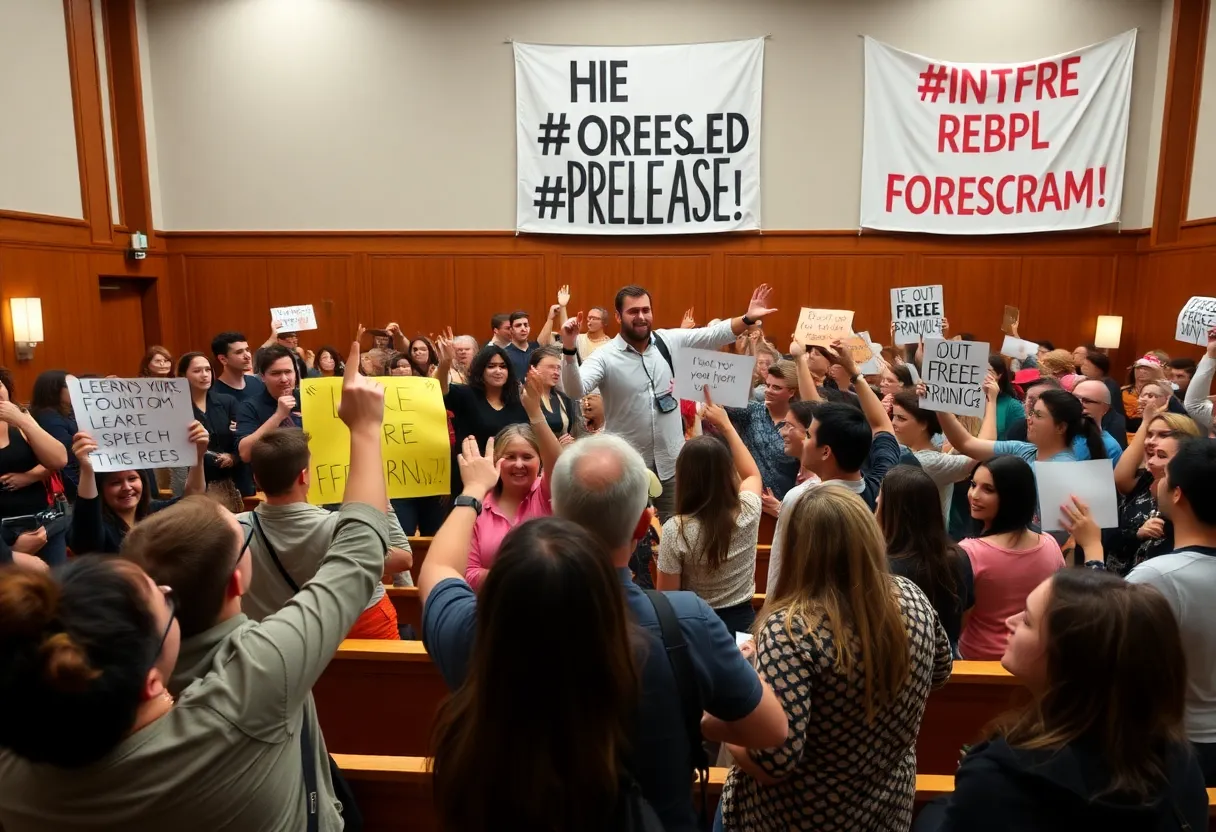Shreveport Trial Begins: Debating the Legality of Louisiana’s New Black Congressional District
The federal trial to determine the legality of Louisiana’s recently mapped majority Black congressional district began on Monday in Shreveport, inciting heated debates from both proponents and critics of the new boundaries.
Lawsuit: Race-Based Districting is Unconstitutional
The lawsuit challenging the redrawn boundaries of the sixth Congressional District argues that the district, which stretches from Baton Rouge to Lafayette and up to Alexandria and Shreveport, has been based solely on race, declaring it as unconstitutional. The two key witnesses who testified for the plaintiffs, namely Republican Shreveport Sens. Alan Seabaugh and Thomas Pressly, insisted that the map drawn by the Republican-dominated Legislature was solely influenced by racial considerations.
According to Seabaugh, they were essentially instructed to draw a second majority-minority district, otherwise the judges would do it for them. He stated that the racial component was a crucial factor in the redrawing, referencing prior court opinions that indicated the previous map had violated the Voting Rights Act by maintaining only one Black district in a state with a one-third Black population.
Defendants: Concept of Racial Fairness and Political Interests
However, those defending the new map have posited that race wasn’t the only factor behind its design. They argued that political considerations were the primary drive, particularly the preservation of the state’s significant influence in the GOP-majority House, and protecting the incumbents such as Speaker Mike Johnson, Majority Leader Steve Scalise, and Congresswoman Julia Letlow.
When Seabaugh and Pressly were asked if protecting these incumbents was politically important, they both concurred, emphasizing how beneficial it is for their state and region. Legislative debates regarding the balance of racial fairness and political interests are anticipated to be a significant element of the ongoing trial.
Critics: Geographic and Cultural Commonalities Ignored
Yet criticism surfaces over the argument that the sixth Congressional District lacks the elements usually considered when shaping political boundaries, such as geographic compactness and socio-cultural commonalities. Critics advocated that there is a vast divide between the north and south of Louisiana, implying how Shreveport’s needs are distinct from those of Baton Rouge.
The ongoing trial is forecasted to continue into Tuesday, marking only the latest legal challenge involving the state’s congressional districts. This lawsuit follows a ruling by a federal appeals court in the previous year that ordered Louisiana’s congressional map to be redrawn to incorporate a second majority Black district out of six. The outcome of this trial may have significant implications for the state’s political landscape, possibly even the political future of Republican U.S. Rep. Garret Graves who feels his seat may be at stake due to the redrawing.
Implications and Expectations
The trial in Shreveport highlights the ongoing tensions in legislative redistricting, depicting dilemmas over racial representation, geographical divisions, and the protection of incumbent advantage. As Louisiana and the rest of the nation watch, the landmark court decision is poised to shape future discourse on the principles of electoral map-drawing and the ideals they embody.







